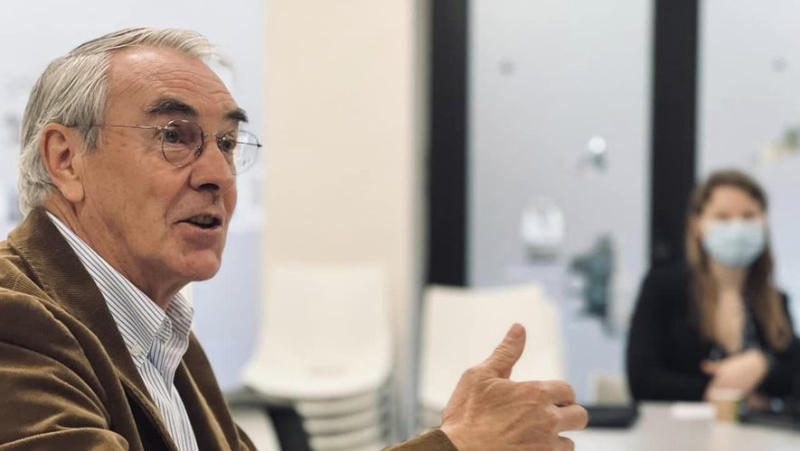End-of-life bill: “assisted dying must remain the exception” for Aveyron MP Jean-François Rousset

Jean-François Rousset, deputy for the third constituency, here during the examination of the law in committee. D.R.
The debates on the text on the end of life began on Monday at the assembly. Renaissance MP Jean-François Rousset, former surgeon, was vice-president of the dedicated commission.
The law on the end of life entered into debate yesterday in the Assembly: was this a strong expectation on your part?
The law is awaited by patients seeking care, by citizens who want this freedom, and by caregivers who need a legal framework to support their patients. 70% of French people say they are in favor of assisted dying. As a surgeon, I also know that this is a sensitive subject and that the devil is in the details. The law was the subject of significant preparation work with hundreds of hearings. It’s a social subject that touches everyone’s deep convictions. The strength of this law lies in respecting the wishes of patients and the conviction of health professionals.
Article 6 on « assisted dying » should be the main course of this week: what position do you want to take on this subject ?
Article 6 of the law sets five mandatory conditions for access to assisted dying: being over 18 years old, being of French nationality or residing there on a stable and regular basis, being able to demonstrate his will in a free and informed manner, be suffering from a serious and incurable condition in an advanced or terminal phase, finally present unbearable physical or psychological suffering linked to this condition. But for example, how can we precisely define the moment of transition into illness where the suffering has become unbearable ? We are in the process of specifying the conditions mentioned so that the writing of the law is unambiguous. The decision must be based on a medical diagnosis and respect the patient's beliefs.
What modalities should, in your opinion, surround this « assisted dying » ?
There are several models of assisted dying. In France, today everything involves deep sedation and continues until death. It is accompaniment by palliative care until the last day, because at a certain point of pain the substances necessary to relieve it are lethal. Tomorrow, if all five conditions are met, then the patient can decide not to go through this terminal sentence by deciding to end their life. For patients meeting the criteria, we then move towards assisted dying by self-administration. As an exception, administration by a third party, a relative or a healthcare professional, will be possible when the patient is not physically able to do so.
Until then, the government uses the term assisted dying and not « assisted suicide » or « euthanasia » : why this choice ? And doesn’t it amount to the same thing ?
Between the « assisted suicide » and « euthanasia, the difference lies precisely in the choice of the person who administers the lethal substance. In euthanasia, the patient is administered the substance by a third party. In assisted suicide, the patient is given the product that allows him to end his life. Both vocabularies seemed to us to be linked to a violent imagination inconsistent with the logic of care that we defend, hence the choice to speak of assisted dying.
Former surgeon, what is your deep conviction on this subject which, still, animates society and is subject to strong criticism ?
I am extremely attentive to the way in which debates are conducted because it is a major subject which deserves a calm debate. Basically, I would like us to open up more of the possibility for the patient to have the lethal substance administered by a caregiver. Humanly, I find the principle of self-administration to be very harsh. However, it seems to me possible to achieve this without taking away from caregivers the possibility of deporting themselves out of personal conviction. In the commission which examines the text and of which I am vice-president, we voted for the creation of a register of caregivers willing to support patients in assisted dying. This is an important step.
This law will also be an opportunity to review a strategy for palliative care, which one will it be ?
Palliative care is the gateway to all care. In other words, assisted dying must remain the exception. We must first allow each patient to have a dignified end of life by relieving their suffering throughout their treatment. This is why we have provided in the law for an investment of more than 1 billion euros to give all French people access to appropriate care, whether through the creation of homes support or by a sharp increase in resources dedicated to palliative care.
I subscribe to read more




